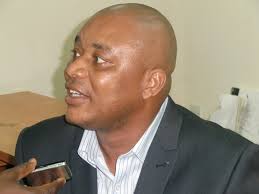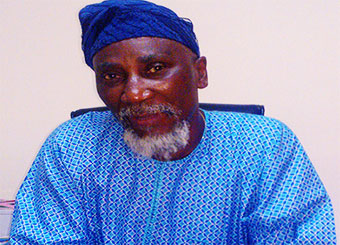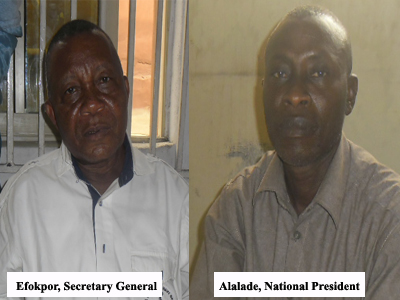Why Foreign Airlines Charge Higher Fares In Nigeria

Mr. Kingsley Nwokoma is the President of the Association of Foreign Airlines and Representatives in Nigeria. In this chat with the media, he talks on why Nigerians pay higher airfares in West African Sub-region, challenges of unemployment and the difficulties foreign airlines have in investing in Nigeria. Excerpts
What are the constraints foreign airlines operating into Nigeria are facing currently?
Safety is the key in this industry; when I say safety, I mean 100 per cent safety. It is a big factor in this industry. So if we are going to start talking about constraints we will not stop talking because if you look at the facilities we have around the airport itself, you will find out that they not world standard compared to various airports even in Africa.
Even in the continent, we are not rated among the first 10 best airports. So from avio-bridges to safety issues like runways, even basic air conditioning, and power, when you put all these together, they are all major constraints at Nigerian airports. But business is business, business has to be done and luckily for us, we have large population so that is why we are attractive, because we have a lot of Nigerians traveling every day. The percentage is very high.
We ought to strive to meet international safety standards. We have to look at what other countries are doing and we should ensure we surpass other African countries, because we are called the giant of Africa, so we should show that we are true giant. If you go to Oliver Tambo Airport in South Africa, you go to airports in Cairo and the rest; you will see that a lot of modern facilities are in place. There was a time we had leaking avio-bridges. This embarrassed passengers .You know it is a shame because once you are coming out of the aircraft, it is the avio-bridge that you are going to be stepping on. So, when you look at it and realise that it is in a terrible mess and in a very unhygienic state, then there is a problem.
Then you look around the airport too, you will see water leaks, you will see different containers, buckets being placed in different places to trap rain water that find its way into the terminal. That is an eyesore. So, we have to leverage into world standard if we want to play big in this industry.
What do you think is the reason why foreign airlines hardly code-share with domestic carriers?
It is about local airlines meeting the same safety standards like their foreign counterparts and also having operational system that is transparent. Otherwise, there should have been some kind of partnership between some of these airlines and that of international carriers. We have situations where different companies are merging together.
Those days, we just have Air France as a single airline, but these days, we have Air France partnering with KLM, Air Italia, so the more that we have together the stronger the brand. I am an advocate of code-sharing. I say it all the time, there was a time I was leaving the US, I had a very important meeting in Lagos, but due to bad weather we got in late into Paris and I insisted that I needed to travel to Lagos immediately. I travelled with Air France and because of the code-sharing I was put in the next Virgin flight that would be connecting to Lagos.
So, this is how it should be, but our local airlines should also code-share among themselves. They have been unable to do this and that is a problem. You are coming from Abuja at times or you are going from Lagos and you just see few people in an aircraft; meanwhile, you are like seven operators that morning which flights left Abuja to Lagos and you will find out that there are not too many people in each flight, so why not use one flight and take those passengers to Abuja or Lagos? Because if they had code-shared they would have saved manpower, they would have saved money, they would have saved fuel.
So, charity they say begins at home; let’s even start code-sharing locally here. If you are buying a ticket for instance from Thailand and it is terminating in Port Harcourt that is an evident example of code-sharing because what it means is that once you are in Lagos you have a carrier that will take you directly from Lagos to Port Harcourt.
But it goes beyond that because if I am buying for instance an Etihad ticket or an Emirates ticket and it is going to terminate in Port Harcourt, for instance, everything is based on the first carrier because I am paying to the first carrier, if there is an incidence or an accident or anything goes wrong, of course the airline responsible is your first point of purchase. So, code-sharing goes beyond just code-sharing. There is a lot of memorandum of understanding that have to be in place which also includes safety standards. There is also the issue of ability to effectively maintain your aircraft; that to be looked into. This means that maintenance teams from the two airlines have to sit together, the same with their economic teams.
They will have to look at their safety and economic books to make sure that whoever I am partnering with meets my standard. So, you see it is not just about code-sharing; it goes beyond that. If the foreign airlines carry out that evaluation and all our airlines here are in top shape, then they will become attractive brides. So, I am an advocate of code-sharing, code-sharing is key in this industry. If it is working in some other places it should also work in Nigeria.
International carriers are not employing or investing in Nigeria. What do you think is the problem?
You know we hear this all the time about unemployed pilots, unemployed engineers, but let’s face the reality on ground; unemployment is a general problem in Nigeria. There is no sector, whether it is education, engineering or even accounting that there is no unemployment. There is no sector that we don’t have unemployed youths, so we have to realise that it is not just aviation; it is a general problem. As I am talking to you, every year we have graduates coming out from different institutions. If you check your record; at times, you will find out that there are so many CVs of graduates with even very good grades like first class, second class upper that are just looking for basic jobs to the extent that it degenerated to a point whereby Dangote wanted graduate drivers.
First of all, we have to look at it from the perception that it is a general problem. In fact, aviation has the least unemployed professionals. Let’s look at it; we don’t have a viable world standard aviation industry. We have been talking about establishing Maintenance, Repair and Overhaul (MRO) facility in Nigeria. All our checks, even minor ones, are being done overseas at huge cost but it shouldn’t be. There is no reason why the government should not have brought in Boeing and other big aviation companies to start up these facilities. And let’s also face it, when we had Nigerian Airways we had a lot of Nigerian working there, it was a Nigerians pride. Once pilots and engineers were leaving Nigerian College of Aviation Technology (NCAT), Zaira; they were getting a job with Nigerian Airways; same thing with other carriers.
Of course, foreign airlines employ staff but their first take will be their own nationals and another thing is that people are not just getting this thing very straight; for instance if you leave flying school you need to get some number of hours for you to fly some aircraft. You are talking about foreign carriers what about our domestic carrier? Some of the local airlines even have expatriate pilots flying for them because it is easier for them to just pay somebody who is grounded, who has a lot of flight hours than the indigenous pilots they have to go and train to fly their particular aircraft type. So the government has to create a very enabling environment. When you look at this, you will see there are a lot of dimensions to them.
Why is it that foreign airlines are not involved in the development of aviation in Nigeria as their Corporate Social Responsibility?
The major challenge the foreign airlines face in investing anything in the country is lack of transparency. They want to ensure that the money they put in will give them the desired result but it is not always so. That explains why the carry such investment in other African countries where things are transparently done. Most of the people they meet with are Nigerians they are not ghost, they don’t just come into a place and start to operate.
At times, some of them even have agents here. And I know some foreign airlines here in Nigeria do a lot of sponsorship. If you look at it properly, the same foreign airlines are complaining that everything is four times or five times the price in Nigeria, I mean the charges. What you pay in some other countries is not what you pay in Nigeria. That is why it has also affected ticket sales; the amount of money you use in buying ticket in Ghana to the UK is lower than the same ticket you are going to buy from Nigeria. They have to compute all these high charges into the ticket and that is why it is relatively higher than what you get from Ghana and other neighbouring countries.
How are the foreign airlines dealing with security and Ebola issues in Nigeria?
Security is very important to them. The airlines cannot compromise that because if anything happens to anybody you will be shocked that the airline might not even come back to Nigeria. For instance, the Ebola problem that we have now, we have a lot of foreign carriers that have stopped doing crew change in Nigeria. They just come in here, drop the passengers, the crew do not have any interaction with anybody and they go to Accra for their crew change.
We are the ones that are even the architect of our own problem because we blew the Ebola thing out of proportion. It is just like when something happens or maybe there is a bomb blast for instance in Plateau state; before you know it, it is blown out of proportion by the Nigerian media and we have situations where also foreign media carry all these things.
There was a time we had some crew members saying they were not going to come into Nigeria because of Boko Haram.
Some of us had to travel out to educate them on what the government is doing and explained to them that insurgency is not in any way near Lagos; that they were not in Lagos. That they were not in major airports and that the government was on top of the situation. But when such things are in the newspapers they tend to believe the report and are afraid because these people follow up on the media here in Nigeria and when such happens the next thing they do is to start calling me and asking questions. They all feel that the whole Nigeria is under siege, so I think we should also help ourselves too because that was the same thing we had with the Ebola crisis.
Do you think foreign airlines pay more for hotels when they are in Nigeria?
Of course, because of this Ebola crisis the hospitality industry will tell you how much they have lost. For instance, I can mention a lot of airlines that are up till today as I am talking to you are not coming into Nigeria until they are sure that this is contained. For instance, Singapore Airlines cargo stopped coming into Nigeria and we are losing revenue. Cargolux stopped crew change; I can keep going on, on. The thing is there is a problem, if not for Patrick Sawyer we won’t be in this mess that we are now. It just took one person to cause this problem, so everybody is trying to be careful, they are also trying to be cautious.
What do you suggest should be done on this Ebola issue? How can Nigeria make the world know it is Ebola free?
Well the media has a role to play here too because the same media that exaggerated the issue can also let the world know that we are free from Ebola so that at any point if I am in Singapore or I am in Belgium checking the news about Nigeria what I will be seeing is that we have contained it.
It got to a point that Nigeria was being ranked with Guinea, Liberia and Sierra Leone; meanwhile, we know that it is not as bad in Nigeria. And where did it start from? It started from Congo a long time ago it is even named after a river called river Ebola in Congo and the Congolese were able to contain it. So, it is an eye-opener because I also found out that the Western world doesn’t care about Africa unless there is something that benefits them because Ebola did not start today. It is now they know that it will affect them too that is why everybody is sitting up to discover vaccine for that. They know that Nigeria is a major hub. We have the population and a lot of Nigerians travel, so they need to also invest and contain the disease so that it won’t affect their commercial interest in the country.
How do you rate cargo freighting by air in Nigeria?
I wouldn’t say air cargo is coming up in Nigeria; the truth here is that it is garbage in, garbage out. We don’t have exports out of Nigeria and if you want to make money it should be import and export. Where we really have export is in other African countries like Nairobi, they have a lot of flowers, in Ethiopia where they export coffee, in Ivory Coast where cocoa is exported and in Ghana. It has even degenerated in Nigeria to the extent that even the little exports we have like yam is not exported through Nigeria. The middle belt in Nigeria can feed the world with yam but these yams go by truck to Ghana. And before you know it is being exported as Ghanaian yam. In London, maybe you go Salisbury or any of these shops that you want to buy yam it will be labeled as Ghanaian yam because their packaging is wonderful and export in Ghana is zero tax, you don’t pay any kobo.
But here in Nigeria there are a lot of bottlenecks, as you are doing this, this agency is collecting money the other is collecting its own. They might tell you they are not doing that but by the time you are done with this agency, you are going to the other one to pay. We had an experimentation at one time, we wanted to export oranges to the UAE from Nigeria by the time finished and got to the UAE we had lost money. I think everybody is just focused on oil, in the 60s and 70s we had the groundnut pyramids, we had the cocoa, we had rubber, and we had palm oil.
Do you think the perishable terminals being built by government in some airports will be successful?
It is very, very unrealistic and I will tell you why. Everything is sequential, one step at a time. First of all, the farmers, have you encouraged them to grow export related product? What is the statistic that you have? For instance if you call Asaba, or Jigawa a perishable airport what do they have there? What amount of perishable export can we garner from that zone? How have you encouraged the farmer? How have you taught them the act of temperature cooling? Have you taught them the act of making your perishable same standard with worldwide standard because everything has to do with standard?
The orange you will take here might not pass the quality control test in some countries. So, the ground has to be properly laid first of all then after that you carry the Nigeria cargo operators along.








